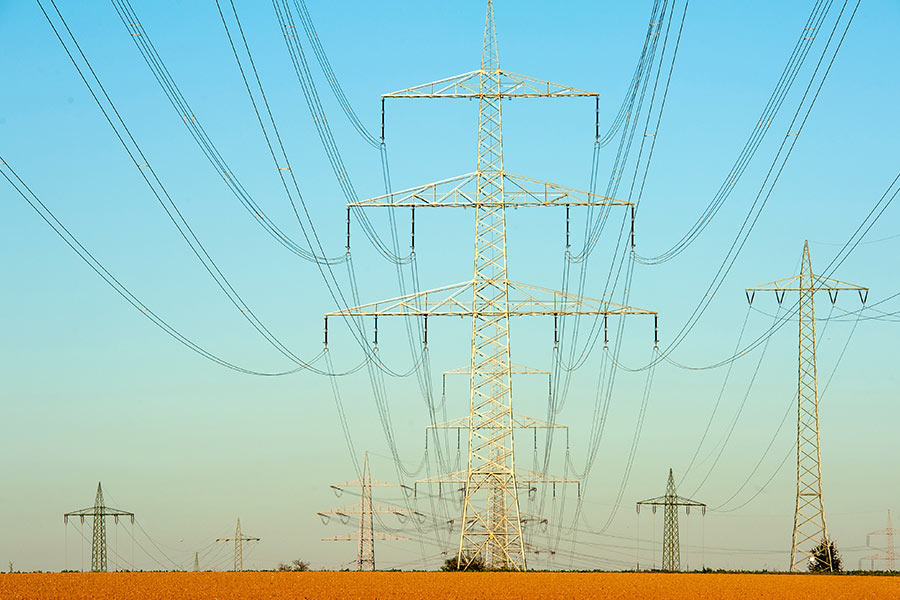Ecoaction supports the connection of Ukraine’s energy system to the European network of electricity transmission system operators ENTSO-E. We consider this an important step towards accelerating the energy transition and decarbonization, at the same time we must highlight a number of features of the Ukrainian electricity sector and have appropriate reservations.
The rapid development of renewables in the world leads to the dual challenge for transmission system operators: to ensure RES integration and, at the same time, to maintain and improve the reliability of the power grid. The most effective way to do this is to expand networks and couple markets. Currently, this challenge is at the forefront of both the EU and Ukraine.
As of 2021, ENTSO-E unites 42 operators in 35 countries of the European continent. Currently the Ukrainian government is declaring the synchronization of Ukraine’s energy system with ENTSO-E as one of the main priorities in the energy policy of our country.
Ecoaction supports the connection of Ukraine’s electric grid to ENTSO-E, as this brings several important advantages:
- Transparency and competition. The integration of the electricity markets of Ukraine and the EU, which will be possible after physical synchronization with ENTSO-E, will contribute to the strengthening of competition in the wholesale markets and the demonopolization of the electricity sector. For electricity consumers, this means transparent, stable and reasonable prices in the long run.
- Upgrading outdated infrastructure. Synchronization provides hardware and software modernization of Ukraine’s energy infrastructure. Ukraine’s accession to ENTSO-E will facilitate the decommissioning of obsolete soviet coal and nuclear power units, which in market conditions will be simply uncompetitive compared to electricity from other sources and countries.
- Combating climate change. The gradual decommissioning of obsolete thermal power plants that run on fossil fuels and the increase in the pace of RES deployment will accelerate the decarbonization of the electricity sector. This, in turn, will allow Ukraine to contribute to curbing global warming below 1.5-2 °C.
- Energy security. Ensuring energy security and independence from the Russian Federation. Currently, Ukraine’s power system is synchronized with the Russian and Belarusian grids. Ukraine relies on Russia’s balancing capabilities, as well as partly on steam coal supplies, which poses a real threat to the stability of the Ukrainian power system. In addition, the advantage of synchronization is the strengthening of the reliability and resilience of Ukraine’s energy system, in particular the ability to receive emergency assistance from the energy systems of ENTSO-E countries on a clear contractual basis.
At the same time, there are several problematic issues that need to be considered by both the Ukrainian government and our European partners:
- Сarbon leakage from the EU to Ukraine. Currently, some of the oldest and dirtiest coal-fired power plants in Europe (Burshtynska TPP, Dobrotvirska TPP) have long been working to export electricity to EU countries without complying to environmental standards. Having received cheap electricity, other countries do not suffer from harmful emissions from coal combustion, which “remain” in Ukraine. We emphasize that the carbon leakage problem in electricity trade should be resolved before full synchronization of Ukraine’s energy system with ENTSO-E.
- Nuclear safety. Ukraine’s nuclear power sector, which currently produces more than 50% of the country’s electricity, cannot be considered a sustainable source for increasing electricity exports to the EU after synchronization, as the lifetime of NPPs has been extended without taking necessary measures to improve their safety. Ukraine has sufficient potential to switch completely to renewable energy sources to ensure the sustainable development of the energy sector and the economy as a whole.
- Market non-transparency and weak antitrust measures. Both the domestic wholesale electricity market in Ukraine and export-import operations are still not fully compliant with EU rules and legislation. The full implementation of EU Regulation 1227/2011 on the integrity and transparency of wholesale energy markets (REMIT) into national legislation and effective antitrust measures should be necessary conditions for Ukraine’s integration into ENTSO-E.

